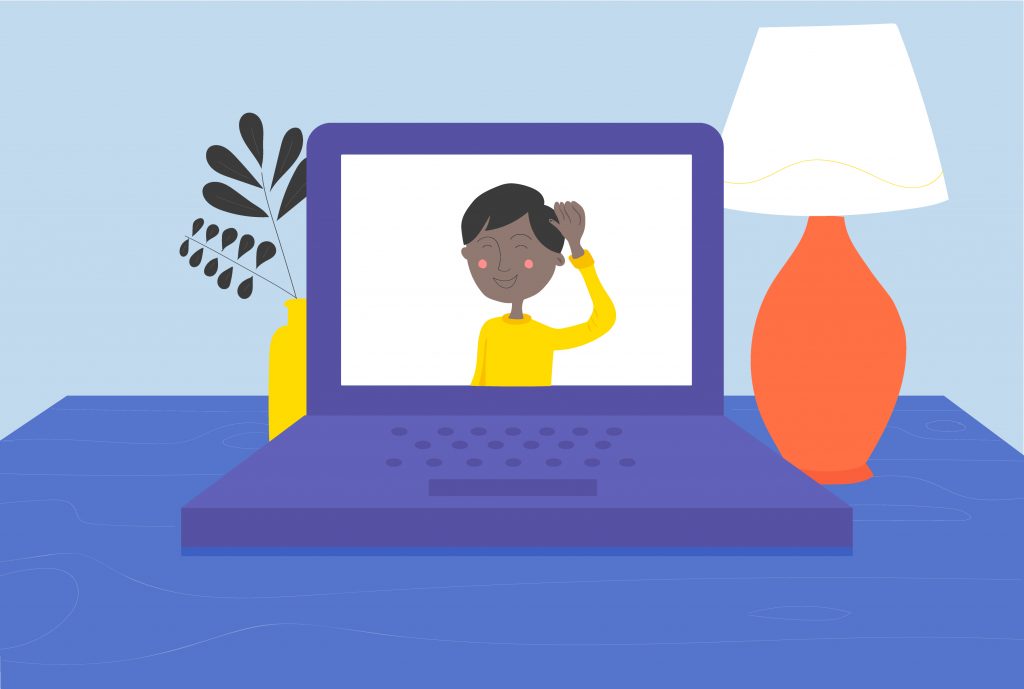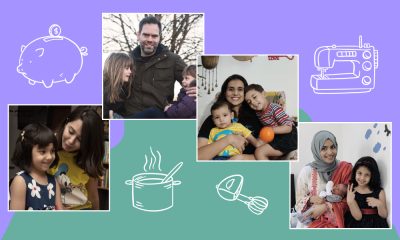Parenting
Moving Abroad with Kids? Here’s How to Make It a Smooth Transition.
A new place can be incredibly exciting and full of possibilities.
In a transient, expat-friendly place like the UAE, moving is the norm. Many families decide to pack their bags and leave their comfort zone every year, embracing change and different routines. Whether it’s for a new job, a better future or more opportunities, moving abroad comes with its own set of unique problems as you start your life over again.
If your family is planning to relocate to another city or country, it’s only natural your children might be hesitant and have lots of questions for you. They’re likely to feel the loss intensely as they think about leaving their school and friends behind. It’s important you allay any fears your children may have and help in making the transition to a new place smoother as a family.
You’re already going to have a lot on your plate with packing, school admissions, finding a home among other things; so having your children experience separation anxiety or be resistant to the move can be difficult and challenging.
Here’s the Re:Set guide to making the process easier for your family to adjust to a new city:

Children often find moving harder than adults do but there are ways to make it easier for them.
Talk talk talk!
Most of the times, all children really need is to be spoken to and be reassured that they can start over. Let them know that their new home can be as fulfilling as the last one and that they’ll make many cool friends here.
It’s important to teach children to embrace change in a healthy manner. Spend time with them and make sure they know you’re around for them — set aside even a few minutes to talk to them about the move no matter how busy your schedule may be. Practice empathy and listen to their concerns patiently, allowing them to vent as much as they need to. For example, when your child talks about not being able to meet close friends anymore, hold their hand and tell them that you understand their pain.
Make new memories while cherishing the old
Help them stay in touch with their friends back home through social media like Instagram and Facebook as well as options like Whatsapp and Snapchat. This way you’ll also be able to monitor their online presence and know they’re keeping safe. Remember to regulate the number of hours they spend on social media to avoid addiction though!
Encourage them to send emails to their friends and former teachers, or turn it into a fun bonding activity and go old school by writing letters or sending postcards via snail mail. Once your family has settled in and if it’s financially viable, plan a trip for your child to visit their friends or even host an exchange program during holidays where the children can stay in each other’s homes.
Do offer words of support to help your child maintain their long-distance friendships and try to be understanding and patient throughout.
Find group activities
Going out more often for family-related activities in the beginning will help your child feel comfortable, less lonely and establish a sense of familiarity in their new environment. Encourage them to pursue old hobbies or find new interests or group classes like chess, tennis or a dance class. This is especially a great opportunity for them (and you) to meet new people. Remember to be gentle in your approach as you explain to your kids that these situations will show up in life often and they need to stay strong. Even if they can’t meet close friends often, there’ll always be options to stay in touch.
Tackle school-related anxiety
Go with your child to school on their first day for emotional support. It’s also a good idea to talk to the class teacher about your child’s potential anxieties. Establish a clear line of communication and request the teacher to let you know immediately if your kid shows signs of anxiety or stress in class. In case your child refuses to go to the new school and is having trouble adjusting, get in touch with a child psychologist/psychiatrist right away for professional counseling.
An expert will also be able to tackle related issues such as depression, low self-esteem, social isolation and adjustment disorders.
Keep an eye on the future
It’s helpful to talk about the new location in a positive manner and show your kids pictures of the family’s prospective home before the departure date. Talk excitedly about the school and the city to get them curious about all the interesting activities and events they can attend. Give them something to look forward to. If you’re not sure about what to do, browse through expat forums and blogs for some quick inspiration and ideas. Involve them and make a list of the places you can go to, the clubs you can join and the kid-friendly getaways close to the city.

With the advent of technology, staying in touch with old friends has gotten easier than ever.
Watch out for the red flags
If you spot your child crying or notice that they’re constantly in a low mood, act immediately. Other things to take note of include a drastic and sudden loss in appetite, sleep trouble, clingy/aggressive behaviour, temper tantrums, social isolation and physical symptoms such as constant headaches, tummy troubles, nausea. You should gently talk to your child and ask them the reasons behind their behaviour. However, if your child doesn’t communicate and attempts to pacify them fail, you must consult a professional for help and advice.
You should also be alert and pay attention to signs of separation anxiety such as poor academic performance, attention-seeking behaviour, conflict within the family and not being close to peers. While it’s natural for most children to experience some amount of separation anxiety when they have to go away from their loved ones, it’s only serious if there’s excessive anxiety involved after the move and the symptoms start interfering with daily life.
Also Read: The Rollercoaster Journey of Parenting While Living With a Chronic Illness
Don’t forget yourself
In the midst of taking care of your family, don’t forget to put yourself first and pay attention to your needs. Self-care is crucial especially when you’re implementing such a major change in your life. You should safeguard your mental health and communicate regularly with your significant other, close friends or family. Your positive mental health will result in better parenting.
Talk or journal about how you’re feeling and what’s bringing you down, work on building a social network to avoid feeling lonely and create a solid work-life balance. It doesn’t have to be complicated: do something you love for 30 minutes everyday such as taking a long walk, going to the gym, listening to your favourite playlist or even talking to your partner about your day or watching your favourite shows together. You can also devise coping strategies with your spouse and plan date nights or pampering sessions at the local spa for a day of relaxation, invite your neighbours for a housewarming or arrange potluck lunches and get to know your colleagues better by grabbing a quick bite after work. Facebook, especially, is a good resource for finding local support groups and connecting with like-minded individuals.
The trick is to communicate efficiently and constantly with your family, plan in advance and prepare for several outcomes. A new place can be incredibly exciting and full of possibilities. All we need to do is take things slow, lean on our loved ones and remain optimistic for the future.
Dr. Graf is a child and adolescent psychiatrist based in Dubai.
























